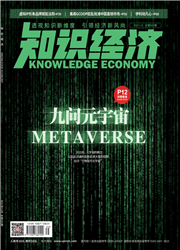深度 |《Wisdom Chain文档知识库》之经济模型
【作者】:网站采编
【关键词】:
【摘要】English Economic Model of Wisdom Chain Document Knowledge Base This article comes from the official Twitter of Wisdom Chain URL: In the previous chapter, we talked about the consensus mechanism of Wisdom Chain Document Knowledge Base. Tod
English
Economic Model of Wisdom Chain Document Knowledge Base
This article comes from the official Twitter of Wisdom Chain
URL:
In the previous chapter, we talked about the consensus mechanism of Wisdom Chain Document Knowledge Base. Today, we will talk about Wisdom Chain's economic model.
It has been 10 years since the birth of Bitcoin. There is no doubt that Bitcoin and Ethereum are the two most important public chains today. Many of their design ideas and concepts continue to influence the later developers of block chains.

Looking at the economic model of Bitcoin, the mining reward for Bitcoin is halved every four years until 2140, when miners'rewards will only include transaction fees in blocks. Bitcoin is a deflation system in the long run, which is why many holders believe it will eventually rise.
In the economic model of Ethereum, the core logic is to let ETH increase indefinitely, but this is contradictory, not to say the total amount of ETH is not constant. From the economic model point of view, the interests of ETH users and miners are not consistent, which also makes the development of Ethereum difficult.
As an underlying public chain, Wisdom Chain's economic model references the Bitcoin deflation model, where the initial output block time is 30 seconds and each block receives a 20 WDC 2102,400 blocks (about two years), this number will decrease by about 52.22% until the block award is adjusted to 6. WDC, and In addition to adjusting the height of the first interest reduction block to 573,6000 blocks, the output will reduce by 52.22% every 6307,200 as follows:

Wisdom Chain's native currency WDC totals 590,000,000, of which the total reward for miners is 88,000,000, and the WDC economic model is 325,000,000 for the community; The technical, operational, ecological and public welfare funds are 177,000,000.
WDC is mainly used for application layer payment, mining equity certificate, transaction deposit, transaction market opening fee, transaction dispute arbitration fee, etc. Meanwhile, you can also use the WDC in your hand to develop your own Dapp for users to make money. Layer2 application chain allows more people to come to the platform for secondary development.
WDC is not a fee like Gas, but rather a \"global state\" that represents its occupation of the Wisdom example, if you have 1,000 tokens of WDC, you can create up to 1000 bytes of space in which you can store assets, DApp status, or other data.
Sounds like the percentage of system memory and CPU that an EOS holder can call?But we need to pay attention to the difference. First, WDC can get space units without collateral, and secondly, it can store content in a unit, rather than \"computing resources\" like CPU or memory.
With the outbreak of Wisdom Chain ecological applications, the value of WDC will continue to grow.
简体中文
本文来自Wisdom Chain官方Twitter
URL:
前面我们讲了《Wisdom Chain文档知识库》的共识机制问题,今天我们就来聊一聊Wisdom Chain的经济模型问题。
从比特币诞生到今天已经有10年之久了,毫无疑问比特币和以太坊是当今最重要的两条公链,它们的很多设计思想和理念不断影响着后来的区块链开发者。

先看比特币的经济模型,比特币每四年挖矿奖励减半,直到2140年为止,此后矿工的奖励就只包含区块中的交易费,长远来看比特币是一个通缩系统,这也是为什么很多持币人坚信比特币最终会上涨的重要原因。
而以太坊的经济模型,核心逻辑就是让ETH无限增值,但这是矛盾的,且不说ETH总量非恒定,从经济模型角度ETH的使用者和矿工的利益并不一致,这也让以太坊的发展举步维艰。
Wisdom Chain作为一个底层公链,它的经济模型参考了比特币的通缩模型,公链的初始输出块时间为30秒,每个块将获得20 WDC奖励。在个区块之后(约2年),该数字将减少约52.22%,直到将区块奖励调整为6.66 WDC,除了将第一减息块高度调整为块外,其余每隔个区块减产52.22%。具体如下图:

Wisdom Chain原生币种WDC,总量为590,000,000,其中矿工奖励总额为88,000,000,WDC经济模型:社区325,000,000;技术团队、运营团队、生态建设及公益基金:177,000,000。
WDC主要用于应用层支付、挖矿权益证明、交易抵押金、交易市场开通费用、交易纠纷仲裁费用等用途,同时你还可以利用手中的WDC开发自己的Dapp,供用户使用来赚钱,Layer2 应用链,让更多的人来平台上二次开发。
文章来源:《知识经济(中国直销)》 网址: http://www.zsjjzzs.cn/zonghexinwen/2020/0827/769.html
知识经济(中国直销)投稿 | 知识经济(中国直销)编辑部| 知识经济(中国直销)版面费 | 知识经济(中国直销)论文发表 | 知识经济(中国直销)最新目录
Copyright © 2018 《知识经济(中国直销)》杂志社 版权所有
投稿电话: 投稿邮箱:

